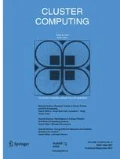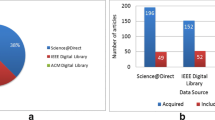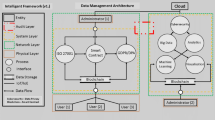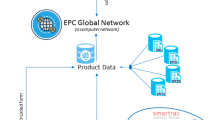Abstract
The cheque based banking transactions are widely used all over the world. The reason is that it is a hustle free and trusted way of money transaction. The existing cheque settlement process involves manual processing of submitted cheques, and large amounts of time for clearance. This paper proposes a framework to automate the cheque settlement process. This framework proposes cheque generation, cheque processing and cheque settlement process through online and physical modes. The proposed framework is based on blockchain technology, where the blockchain network brings all different banks on a common platform i.e. the e-cheque issued from one bank can be submitted to any other bank in any mode of operation either physical or online. The proposed framework comprises a novel trust based consensus mechanism for block mining. The proposed consensus approach outperforms the existing proof-of-work based approach by reducing consensus time by 25%. The proposed framework can partially transform the current banking system over the blockchain. Security threats and vulnerability of the proposed framework is also discussed in this paper.













Similar content being viewed by others
References
Anderson, M.: The electronic check architecture. Financial Services Technology Consortium 123 (1998)
Bano, S., Sonnino, A., Al-Bassam, M., Azouvi, S., McCorry, P., Meiklejohn, S., Danezis, G.: Consensus in the age of blockchains (2017). arXiv:1711.03936
Barclays, I.: Barclays says conducts first blockchain-based trade-finance deal. https://reut.rs/2AQEG9w. Accessed 10 Jan 2019
Castro, M., Liskov, B., et al.: Practical byzantine fault tolerance. In: OSDI, vol. 99, pp. 173–186 (1999)
Chang, C.C., Chang, S.C., Lee, J.S.: An on-line electronic check system with mutual authentication. Comput. Electr. Eng. 35(5), 757–763 (2009)
Cocco, L., Pinna, A., Marchesi, M.: Banking on blockchain: costs savings thanks to the blockchain technology. Future Internet 9(3), 25 (2017)
Eyal, I.: Blockchain technology: transforming libertarian cryptocurrency dreams to finance and banking realities. Computer 50(9), 38–49 (2017)
Gjomemo, R., Malik, H., Sumb, N., Venkatakrishnan, V., Ansari, R.: Digital check forgery attacks on client check truncation systems. In: International conference on financial cryptography and data security, pp. 3–20. Springer, Berlin (2014)
Guo, Y., Liang, C.: Blockchain application and outlook in the banking industry. Financ. Innov. 2(1), 24 (2016)
Insurchain: Insurchain: a decentralized insurance blockchain ecosystem. https://github.com/InsurChain/whitepaper/blob/master/en/whitepaper-en.md. Accessed 10 Jan 2019
Jayadevan, R., Kolhe, S.R., Patil, P.M., Pal, U.: Automatic processing of handwritten bank cheque images: a survey. IJDAR 15(4), 267–296 (2012)
Khalid, U., Asim, M., Baker, T., Hung, P.C., Tariq, M.A., Rafferty, L.: A decentralized lightweight blockchain-based authentication mechanism for IOT systems. Clust. Comput. 15, 1–21 (2020). https://doi.org/10.1007/s10586-020-03058-6
King, S., Nadal, S.: Ppcoin: Peer-to-peer crypto-currency with proof-of-stake. Self-published paper (2012)
Li, D., Cai, Z., Deng, L., Yao, X., Wang, H.H.: Information security model of block chain based on intrusion sensing in the IOT environment. Clust. Comput. 22(1), 451–468 (2019)
Nakamoto, S.: Bitcoin: A peer-to-peer electronic cash system (2008)
Nguyen, Q.K.: Blockchain-a financial technology for future sustainable development. In: International conference on green technology and sustainable development (GTSD), pp. 51–54. IEEE (2016)
Niranjanamurthy, M., Nithya, B., Jagannatha, S.: Analysis of blockchain technology: pros, cons and swot. Clust. Comput. 22(6), 14743–14757 (2019)
Rajender, M., Pal, R.: Detection of manipulated cheque images in cheque truncation system using mismatch in pixels. In: 2014 2nd International Conference on Business and Information Management (ICBIM), pp. 30–35. IEEE (2014)
Santander: Santander launches the first real-time trades in Spain using we.trade, a blockchain platform that helps companies go international. https://bit.ly/2Fw2pj7. Accessed 10 Jan 2019
Schwartz, D., Youngs, N., Britto, A., et al.: The ripple protocol consensus algorithm. Ripple Labs Inc White Paper 5 (2014)
Singh, K., Singh, N., Kushwaha, D.S.: An interoperable and secure e-wallet architecture based on digital ledger technology using blockchain. In: 2018 International Conference on Computing, Power and Communication Technologies (GUCON), pp. 165–169. IEEE (2018)
Singh, N., Vardhan, M.: Distributed ledger technology based property transaction system with support for IOT devices. Intl. J. Cloud Appl. Comput. 9(2), 60–78 (2019)
starbase: Support innovative projects with star. https://starbase.co/star?lang = en. Accessed 10 Jan 2019
Tschorsch, F., Scheuermann, B.: Bitcoin and beyond: a technical survey on decentralized digital currencies. IEEE Commun. Surv. Tutor. 18(3), 2084–2123 (2016)
Tseng, L., Yao, X., Otoum, S., Aloqaily, M., Jararweh, Y.: Blockchain-based database in an IOT environment: challenges, opportunities, and analysis. Cluster Computing, pp. 1–15 (2020)
Author information
Authors and Affiliations
Corresponding author
Additional information
Publisher's Note
Springer Nature remains neutral with regard to jurisdictional claims in published maps and institutional affiliations.
Rights and permissions
About this article
Cite this article
Singh, N., Kumar, T. & Vardhan, M. Blockchain-based e-cheque clearing framework with trust based consensus mechanism. Cluster Comput 24, 851–865 (2021). https://doi.org/10.1007/s10586-020-03163-6
Received:
Revised:
Accepted:
Published:
Issue Date:
DOI: https://doi.org/10.1007/s10586-020-03163-6




